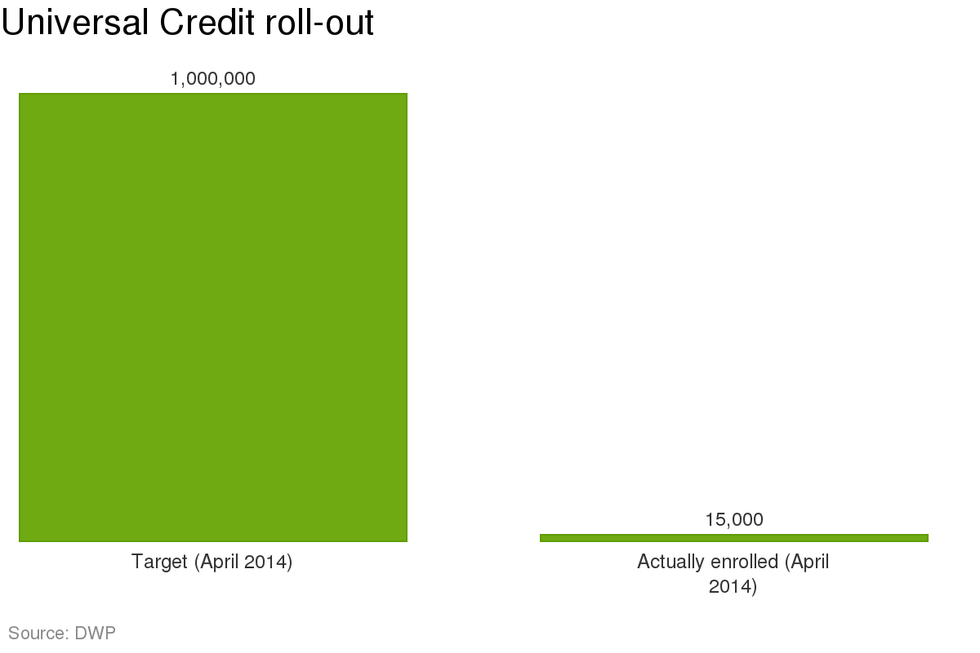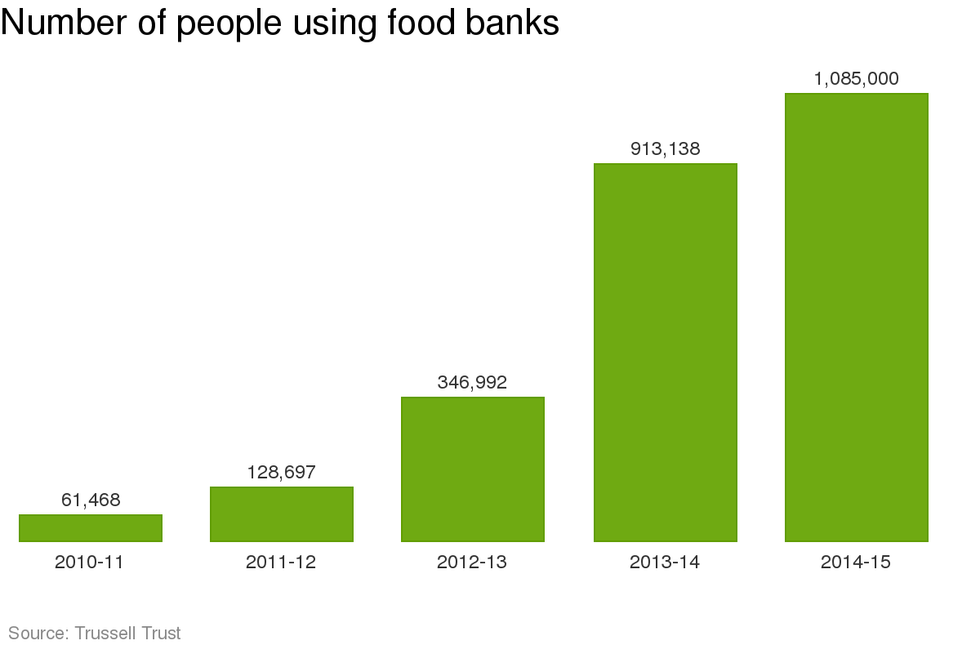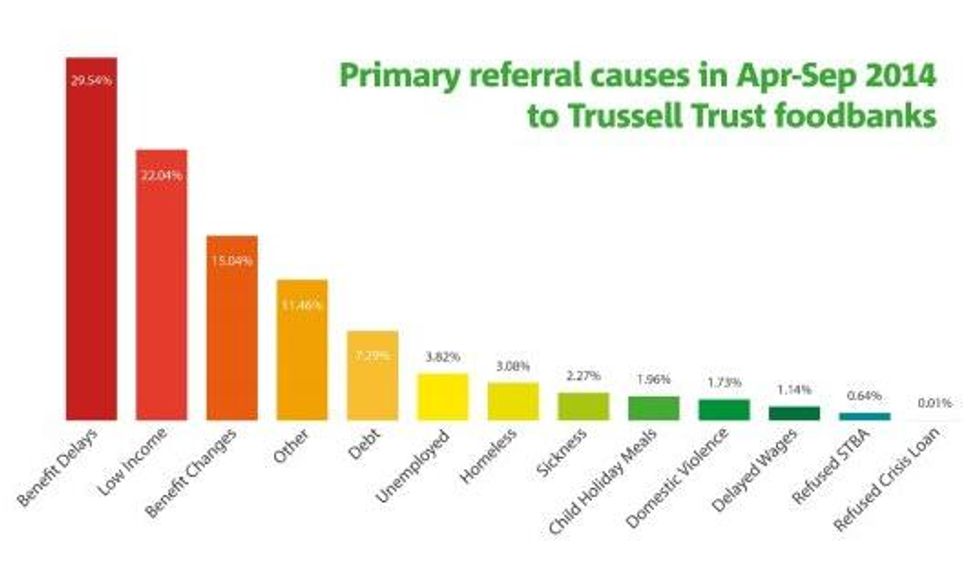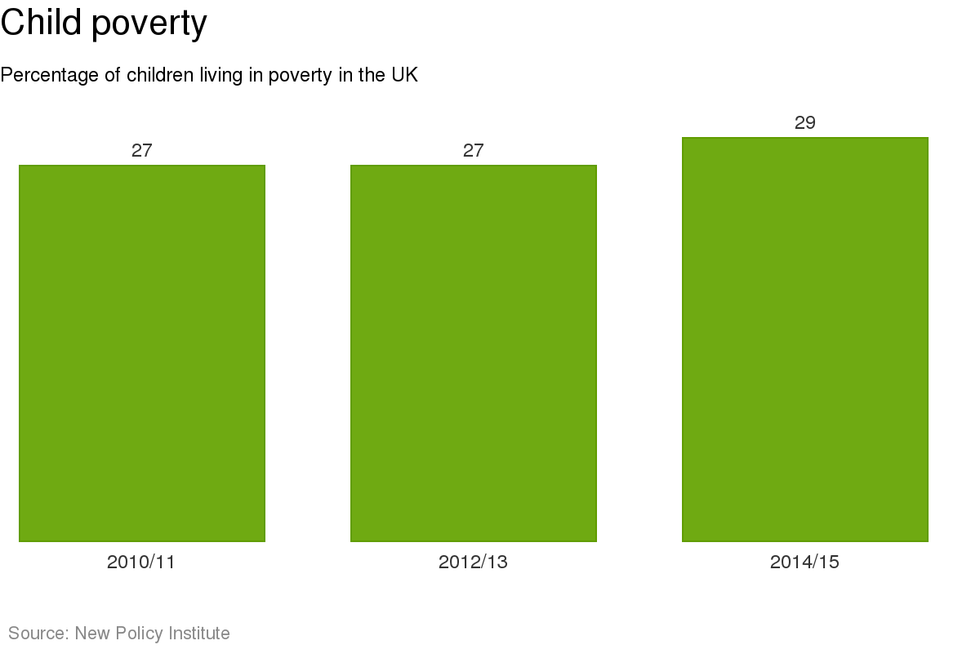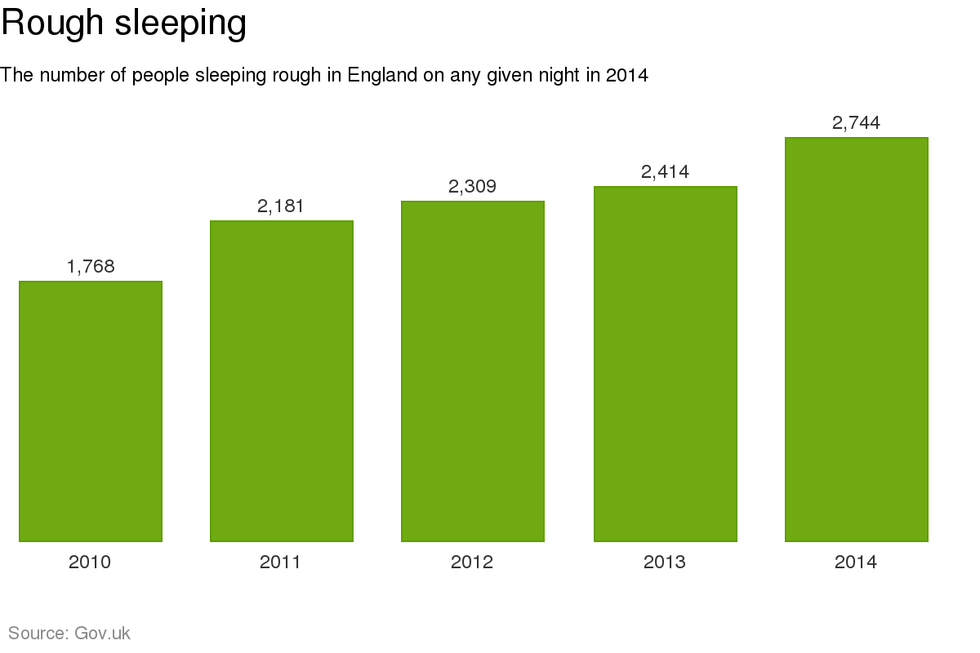News
Evan Bartlett
May 11, 2015
Iain Duncan Smith will continue in his role as work and pensions secretary to oversee a planned £12bn in welfare cuts under the new Conservative majority government, David Cameron has announced.
The former leader of the party has been in the role since May2010.
Here are four ways in which he failed:
Universal Credit
The Department for Work and Pensions (DWP) promised to have one million people enrolled in Universal Credit, which combines up to six benefits into one, by April 2014.
However, following IT delays and criticisms of its implementation, only 14,000 people had been placed on the scheme by the target date and the latest promise is to have all job centres using the scheme by 2016.
A DWP whistleblower told Channel 4's Dispatches last year that the new system, which is supposed to save the government millions in reduced staff costs, is "completely unworkable", "badly designed" and "out of date".
Food bank use
Figures from the Trussell Trust, the biggest provider of emergency food aid in the UK, show that the number of times their food banks were used has risen from 61,000 in 2010-11 to more than one million in 2014-15.
While the effects of the recession cannot be blamed squarely on the Coalition government, Trussell Trust figures show that two of the biggest causes for food bank referral are benefit delays and benefit changes.
Child poverty
The Child Poverty Action Group (CPAG) estimates that more than one in four children in the UK now live poverty.
The New Policy Institute has said that April 2013 - when a range of tax and benefit changes were introduced by the DWP – was a negative turning point for poverty in the UK.
Between 2010/11 (the first year of the Coalition government) and 2014/15 (its last year), child poverty grew by two percentage points from 27 per cent to 29.
In contrast, between 1998/9 and 2011/12, 1.1 million children were lifted out of poverty as a result of measures that “increased the number of lone parents working” as well as “increases in the level of benefits paid to families with children”, according to CPAG.
Homelessness
The government’s own figures show that on any given night 2,744 people slept rough in England in 2014 – a rise of 55 per cent on 2010.
However, local agencies estimate that 6,508 people slept rough in London alone in 2013/14 – a 77 per cent rise since the 2010 election.
While the causes for homelessness are complex, structural factors including poverty, inequality, housing supply, unemployment and welfare policies - some of which are under the DWP's jurisdiction - play a large part, according to Homeless Link.
The chief executive of homelessness charity Crisis, Jon Sparkes, has also previously said benefit sanctions "leave people at severe risk of homelessness".
More: This is how a Tory MP responded to a constituent worried about homelessness
More: Here are some of the biggest cuts so far - and the worst is yet to come
Top 100
The Conversation (0)
